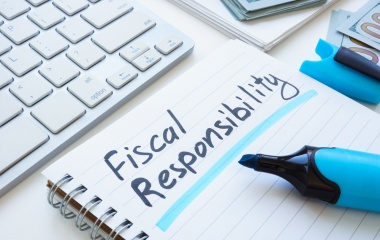
With the drop in net worth that many have experienced I had planned to write about the need for even greater efforts of tzedaka. With so many more needy people and many organizations suffering heavy financial losses those who are in a position to do so, should dig a little deeper and share a greater percentage of their wealth. For many the idea of being able to lose money in the markets would be a great blessings – indicating that they actually have money to invest. How fortunate are those who donated large sums of money, thereby helping so many before they had the opportunity to lose those sums in the markets.
Unfortunately along came Bernie Madoff (isn’t it amazing how prescient names are), who has the apparent ignominy of single handedly permanently losing somewhere in the neighborhood of $600,000,000 to 1 billion dollars (20% more for us Canadians) of charitable funds, not to mention the billions of dollars lost by individuals, many of whom were amongst the largest Jewish philanthropists. Compounding the losses is the fact that may organizations that lost money did not even know they were investing with Madoff, rather they invested with third parties who turned around, at times without the knowledge of the organizations, and invested in what we now know to be the world’s largest Ponzi scheme.
Corruption, fraud, cutting corners, lack of full disclosure, are symptoms of human greed and desire for riches. And these symptoms do not confine themselves to the corporate boardroom but extend to the world of philanthropy. The same people who can be involved in so much good can at the same time fall victim to, let us be charitable here, unprofessional conduct.
The financial system by its very nature is built on trust. Once that trust evaporates the system collapses. This loss of trust is the underlying cause of the current credit crisis, with lenders afraid they may not be able to collect on their loans. Because many charities are run informally, lacking the checks and balances one would typically find in a well run business, it is even more imperative that only the people of the highest integrity be involved in the charitable sector. “One should not give even a prutah (a penny) to the communal charity purse unless it is under the supervision of a person (as honest as) Rabbi Chananyah ben Teradyon” (Bava Batra 10b). The Talmud relates how Rabbi Chananyah when he was the trustee for charitable funds, paid from his pocket for monies that were inadvertently used for different charitable purposes.
It is noteworthy that the Torah consistently uses the expression “and you shall fear G-d” in the context of our monetary dealings and never in the context of “rituals”. True fear of G-d is a guarantee of an efficient and honest marketplace. The need for fear of a Higher authority is especially true in areas in which one is forced to rely on the assessments and judgment of others, where by its very nature, it is impossible to tell whether one is acting in good faith or only claiming to be doing so. Only G-d truly knows if your stock-brokers advice was done for your benefit or their own.
It takes much more moral strength to be a pious businessman than to be a pious religious leader. Our Rabbis are most effusive at praising those who toil honestly to support themselves. Only the truly pious fully appreciate that notwithstanding hard work, talent and ingenuity whatever success they have achieved is a blessing form G-d. A blessing that must be shared with others at all times and especially when economic times are tough.



